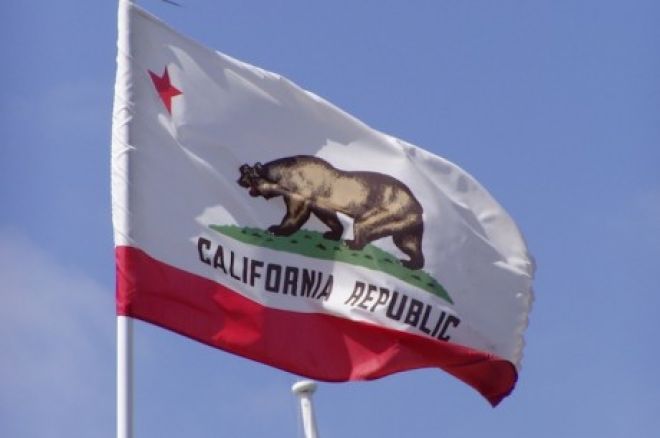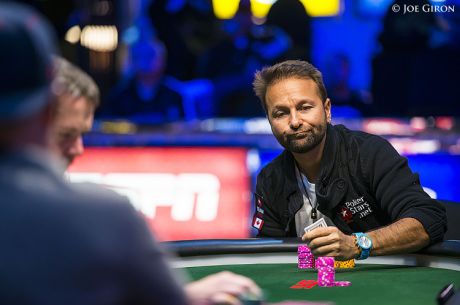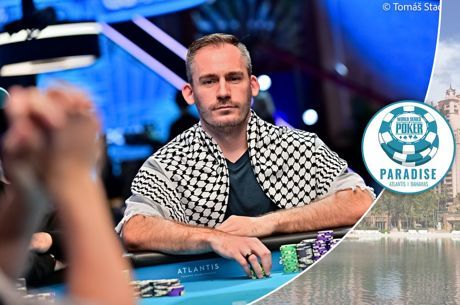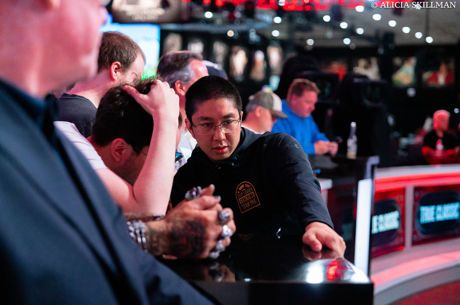California Tribes Still Divided on Internet Poker Legislation Involving PokerStars

As much as a group of tribes would like lawmakers to believe a consensus has been reached among California's gaming interests, the stalemate on language for an online poker bill remains as steadfast as ever.
Thirteen California tribes sent a letter to legislators earlier this week indicating that they had “achieved a consensus for Internet poker.”
Conspicuously absent from the signatures was Morongo chairman Robert Martin, who wasn't even invited to be part of the conversation. What the letter really means is that San Manuel and Pechanga were previously pushing competing bills — Pechanga behind AB 2291 sponsored by Assemblyman Reggie Jones-Sawyer and San Manuel supporting SB 1366 introduced by State Sen. Lou Correa. They have worked out language they can agree upon, and let the legislators know.
It's a step in the right direction. However, all they did was iron out the small creases while leaving the large tear that is preventing California from moving forward on this issue — the bad actor clause.
The 13 tribes want to legislatively preclude PokerStars, the world's most popular poker site, from applying for a license. Morongo and the three largest card clubs in the state have a partnership agreement with PokerStars and want to leave the decision of determining suitability to California's capable regulators.
“We were hopeful when we heard discussions were going on that we would see something come out that advanced the ball, but it didn't happen,” said Keith Sharp, an attorney who represents Commerce Club, Hawaiian Gardens and the Bicycle Casino. “The language didn't substantively change. It's still the PokerStars-centric bad actor language, and we're disappointed they apparently don't want to engage in meaningful dialogue on that issue. They just want to keep PokerStars out, and that's clear.”
The so-called bad actor clause asserts that an applicant for service provider is unsuitable if it operated in the U.S. following Dec. 31, 2006, which is about when the Unlawful Internet Gambling Enforcement Act passed.
PokerStars operated in the U.S. under a gray area of legality until April 15, 2011, when the Justice Department brought criminal charges against the company's executives. Without admitting wrongdoing, PokerStars agreed to pay $731 million to settle a civil lawsuit. The site not only paid out the accounts of its own U.S. players but covered the debts of its rival, Full Tilt Poker, and continues to operate successfully in much of the rest of the world.
Morongo and its partners see the 2006 date as an arbitrary one particularly targeting PokerStars, as the Unlawful Internet Gambling Enforcement Act didn't making anything illegal that wasn't already illegal.
“Our mantra is to leave it to the regulators and let them decide,” Sharp said. “Don't legislate anyone out of the market. If you remove that date, a lot of people get knocked out. If you want to try to talk about bad actors, a lot of people need to look in the mirror.”
He finds the date particularly laughable when it allows tribes to partner with companies that offered online casino betting — a direct affront to tribal business — prior to 2007.
“Those companies were breaching tribal exclusivity and now they're working with tribes,” Sharp said. “PokerStars only offered poker, a nonexclusive game. We're working with a company that didn't breach tribal exclusivity where others are maybe working with ones who did.”
In New Jersey, which passed legislation to legalize online gaming last year, the bill began with a bad actor clause but it was later removed. PokerStars applied for a license and the New Jersey Division of Gambling Enforcement suspended review of the application for a period of two years, indicating that the decision was primarily based on the unresolved federal indictment against founder Isai Scheinberg.
When Las Vegas Sands CEO Sheldon Adelson's representatives point out that New Jersey isn't bringing in the revenue expected with its online gaming operations, as happened at a Pennsylvania hearing this week, Sharp responds that he thinks New Jersey would be doing a lot better if PokerStars were in the market.
“This seems to be an issue that has folks dug in,” Sharp said. “We're certainly not going to budge. We just think it's so obvious the reason that language is there is centered on PokerStars. We're hoping we can have dialogue with the tribes about a way to address this and perhaps convince them, as in New Jersey, to allow regulators to do the job.”
The bad actor clause aside, Sharp indicated that the card clubs could accept the unified language offered by the 13 tribes, which he said didn't change anything substantively other than tightening up the licensing section.
“There may be language there about some technical things that I could probably suggest be changed, but I don't think there are any other items that are ultimate deal breakers that I can see,” Sharp said.
The other area that bothers Sharp is limiting the number of sites per license to two. Morongo and the card clubs would prefer unlimited sites, but he said he would have to bring it to the group to determine if they can live with two.
“Putting any artificial restrictions on competition is not good for the marketplace,” Sharp said. “When you start trying to manipulate the market to act a certain way, that creates difficulties and you don't optimize the marketplace. People should be able to market different ways to different segments, whether that's through one skin, two skins or 10 skins.”
In that vein of supporting competition, Sharp said they also aren't opposed to allowing the state's racetracks to participate in online poker, though it isn't their concern to lobby. The language from the 13 tribes excludes racetracks.
Legislation has until Aug. 31 to pass in California in order to happen this year, but it would require a two-thirds vote as an urgency bill because it did not meet the deadline of clearing its house of origin by May 30.
“We just hope the legislators do what's right for California,” Sharp said. “Don't try to legislatively pick winners and losers, regardless of if every tribe other than Morongo signs that letter. Do what's best for California, for a robust market where everyone has an equal opportunity to participate, not artificial and anti-competitive provisions.”
Get all the latest PokerNews updates on your social media outlets. Follow us on Twitter and find us on both Facebook and Google+!








